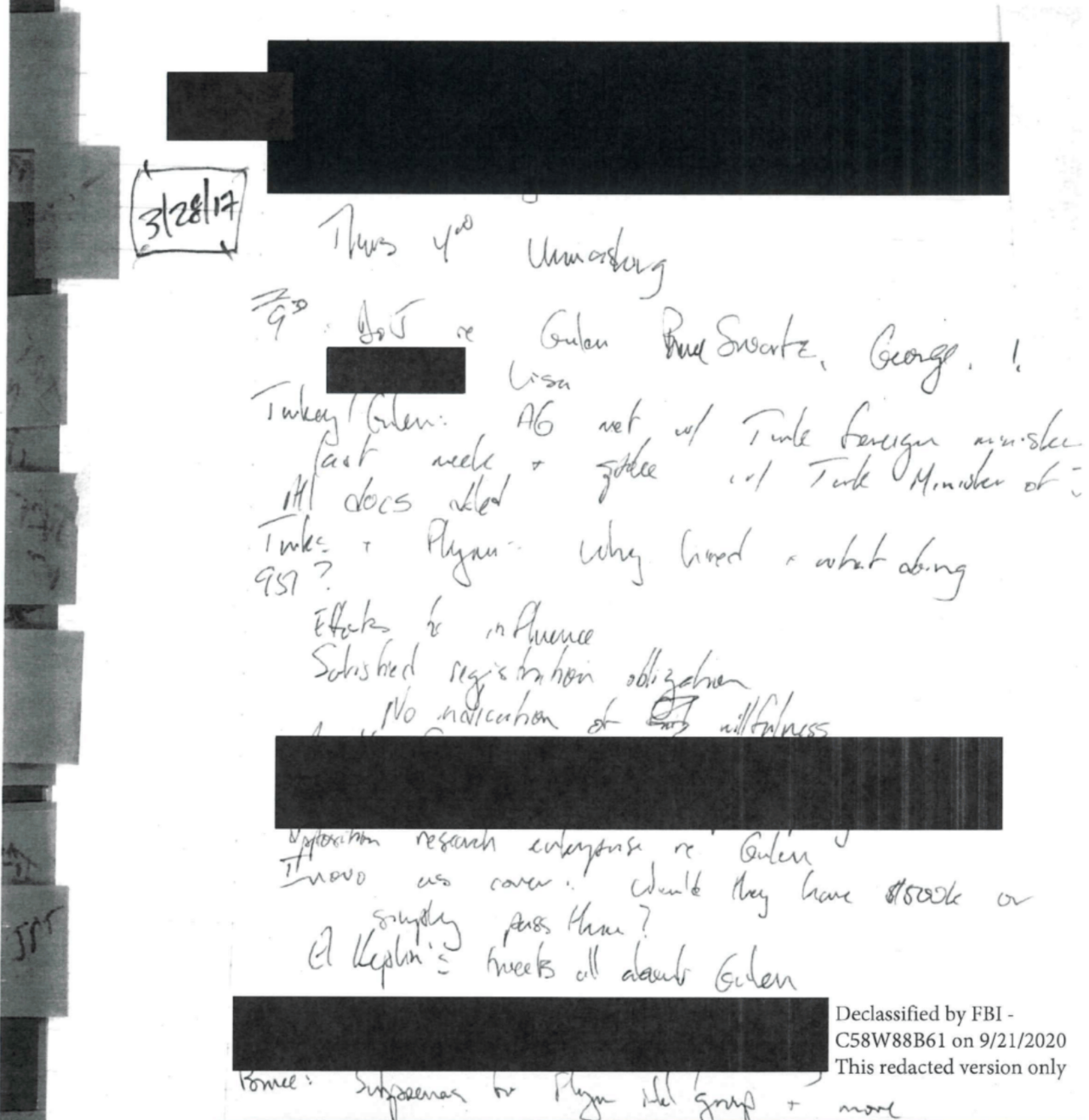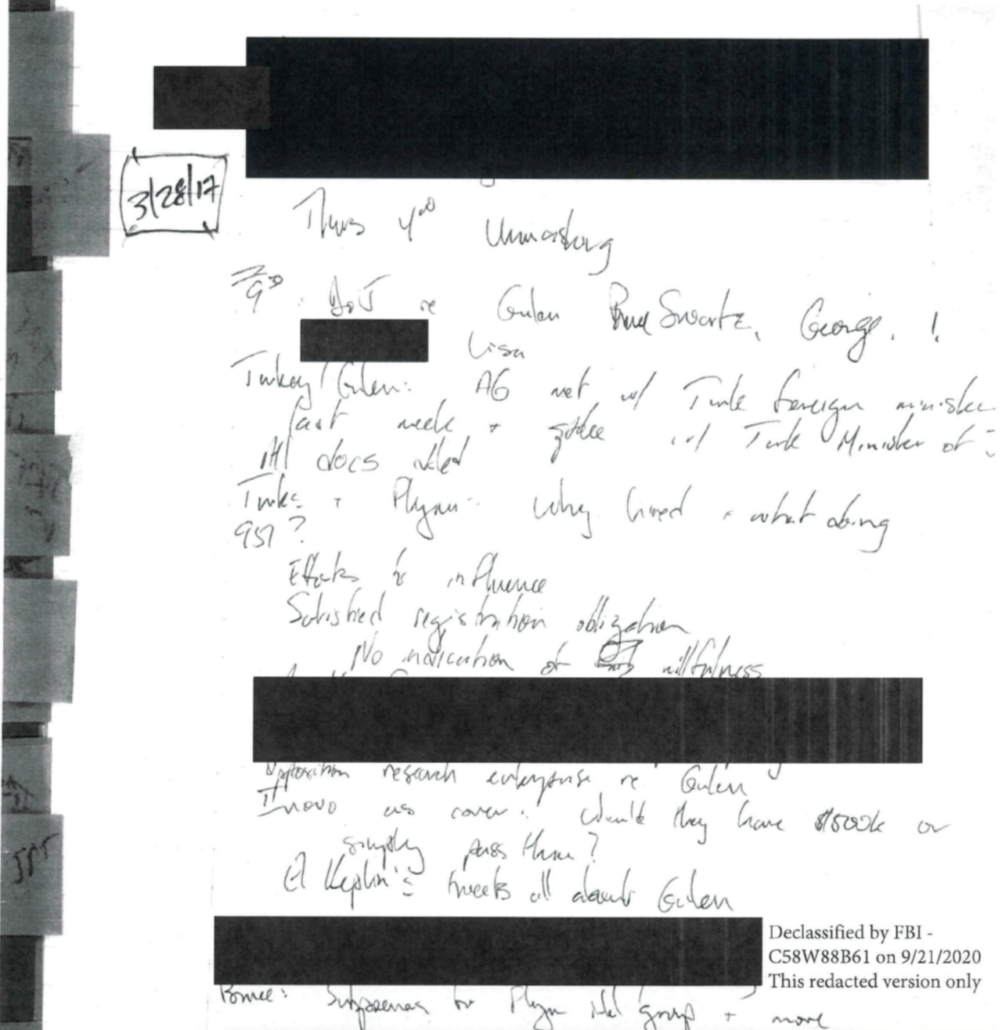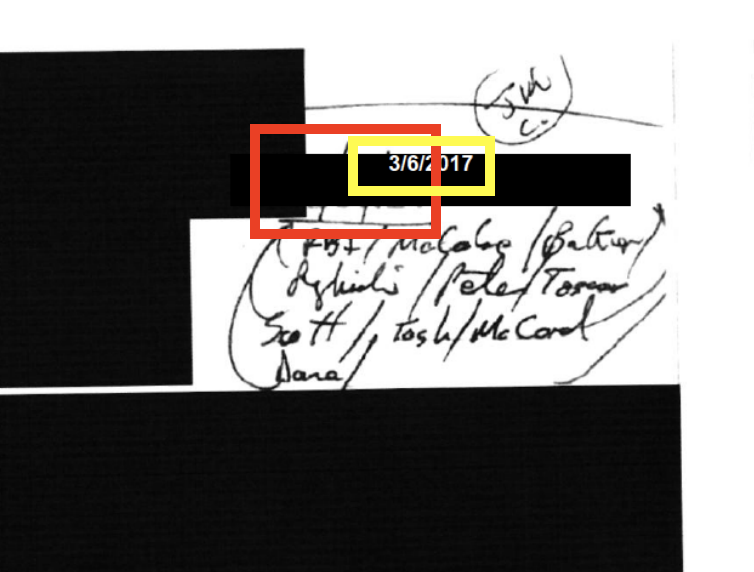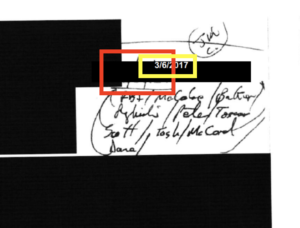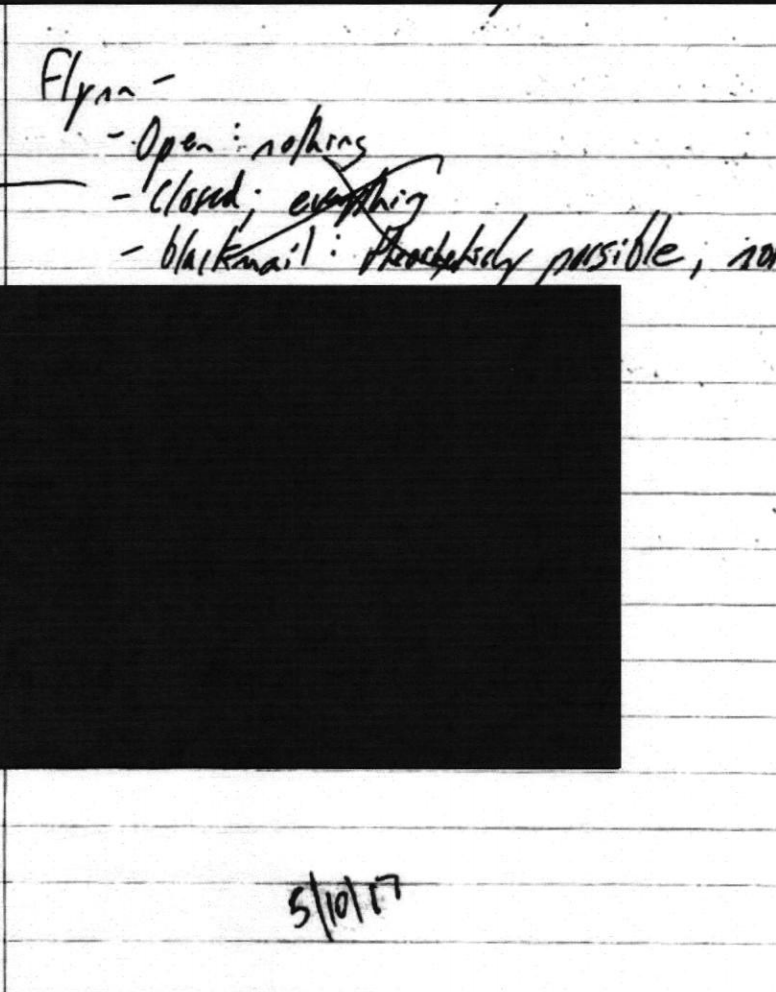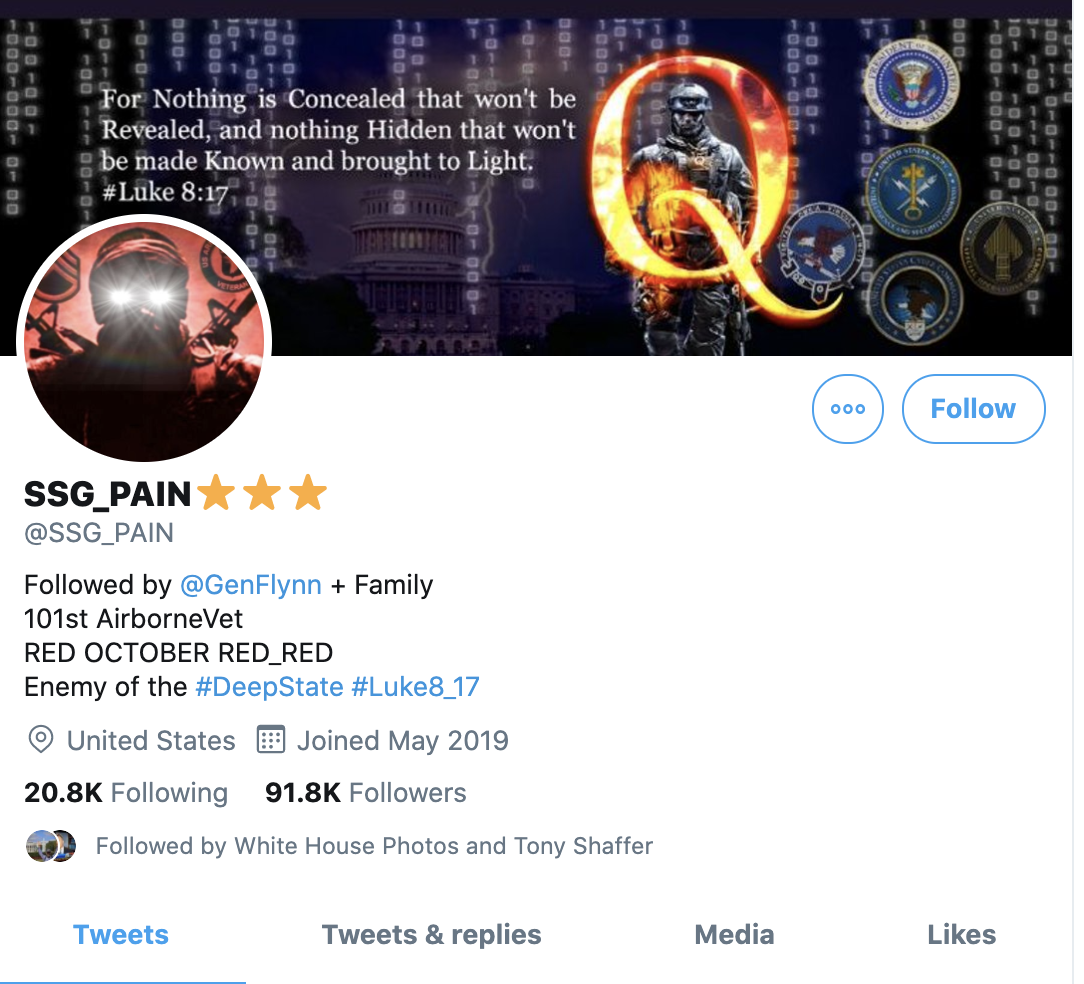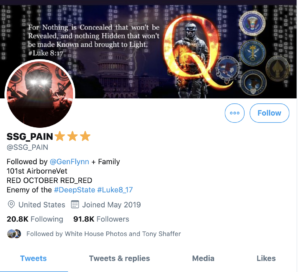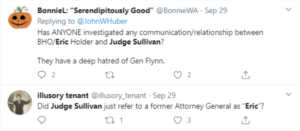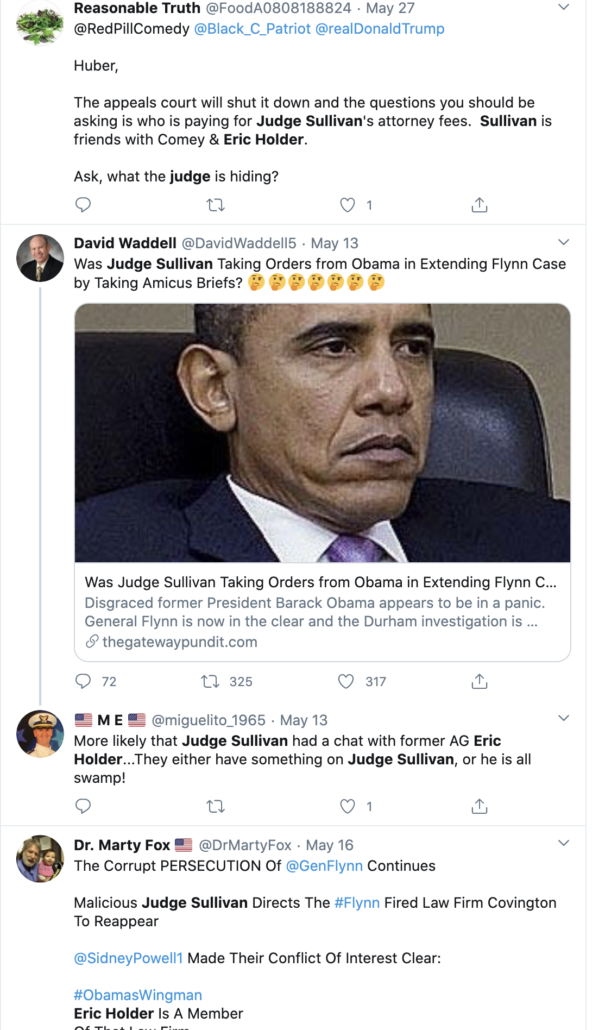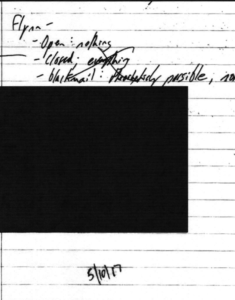Jeff Sessions HAD Shut Down the Investigation into Russian Interference
The most alarming exchange in the Mueller Report described how, on June 19, 2017, President Trump dictated a message that Corey Lewandowski should take to Jeff Sessions, telling Sessions (in part) to meet with Mueller and limit his jurisdiction to investigating only “election meddling for future elections,” not the one that got him elected.
During the June 19 meeting, Lewandowski recalled that, after some small talk, the President brought up Sessions and criticized his recusal from the Russia investigation.605 The President told Lewandowski that Sessions was weak and that if the President had known about the likelihood of recusal in advance, he would not have appointed Sessions.606 The President then asked Lewandowski to deliver a message to Sessions and said “write this down.” 607 This was the first time the President had asked Lewandowski to take dictation, and Lewandowski wrote as fast as possible to make sure he captured the content correctly.608
The President directed that Sessions should give a speech publicly announcing:
I know that I recused myself from certain things having to do with specific areas. But our POTUS . .. is being treated very unfairly. He shouldn’t have a Special Prosecutor/Counsel b/c he hasn’t done anything wrong. I was on the campaign w/ him for nine months, there were no Russians involved with him. I know it for a fact b/c I was there. He didn’t do anything wrong except he ran the greatest campaign in American history.609
The dictated message went on to state that Sessions would meet with the Special Counsel to limit his jurisdiction to future election interference:
Now a group of people want to subvert the Constitution of the United States. I am going to meet with the Special Prosecutor to explain this is very unfair and let the Special Prosecutor move forward with investigating election meddling for future elections so that nothing can happen in future elections.610
The President said that if Sessions delivered that statement he would be the “most popular guy in the country.”611
Lewandowski told the President he understood what the President wanted Sessions to do.6 12 Lewandowski wanted to pass the message to Sessions in person rather than over the phone.613 He did not want to meet at the Department of Justice because he did not want a public log of his visit and did not want Sessions to have an advantage over him by meeting on what Lewandowski described as Sessions’s turf. 614 Lewandowski called Sessions and arranged a meeting for the following evening at Lewandowski’s office, but Sessions had to cancel due to a last minute conflict.6 15 Shortly thereafter, Lewandowski left Washington, D.C., without having had an opportunity to meet with Sessions to convey the President’s message.6 16 Lewandowski stored the notes in a safe at his home, which he stated was his standard procedure with sensitive items.617
When the Mueller Report came out, this seemed distinct from all other attempts to fire Mueller, because it attempted to shut down not just the investigation into Trump, but even the investigation into Russia’s interference in 2016 altogether.
But a passage from Andrew Weissmann’s book makes this passage even more alarming. He describes how, “a few weeks after he arrived” (and so around the same time as Trump’s dictation to Lewandowski), after Jeannie Rhee got her own briefing on the ongoing investigation into Russian interference, Weissmann asked for the same briefing. He discovered that no one was really investigating it.
As soon as the Special Counsel’s Office opened up shop, Team R inherited work produced by other government investigations that had been launched before ours: These included the Papadopoulos lead, the National Security Division’s investigation into Russian hacking, and the Intelligence Community’s written assessment on Russian interference.
Ingesting this information was the domain of Team R, and Jeannie had quickly gotten to work untangling and synthesizing the facts. A few weeks after I arrived, I asked attorneys in the National Security Division of the Department of Justice to give me the same briefing they had given Jeannie, so I could familiarize myself with the investigation they’d been conducting into Russian hacking.
The meeting was in a SCIF at Justice’s imposing art deco headquarters on Pennsylvania Avenue.
[snip]
Because my debriefing with the National Security Division involved classified information, I cannot discuss its content substantively here. It took a couple of hours, as a team of NSD lawyers graciously walked me through what they had been up to and answered all my questions. As soon as I got back to our offices, however, I made a beeline to Jeannie’s office and immediately asked her: “What the fuck?”
“I know,” she said. She didn’t need me to finish my thought.
We had both been shocked by something we’d heard in our briefings—but it was less the substance of the Justice Department’s investigation than its approach. Jeannie knew that she was going to inherit some evidence that Russia had hacked the DNC and DCCC emails, but she was astonished that the National Security Division was not examining what the Russians had done with the emails and other documents they’d stolen from those servers—how the release of that information was weaponized by targeted release, and whether the Russians had any American accomplices. More alarmingly, the Department was not apparently looking beyond the hacking at all, to examine whether there had been other Russian efforts to disrupt the election. It was staggering to us that the Justice Department’s investigation was so narrowly circumscribed. Election interference by a foreign power was, inarguably, a national security issue; we expected the National Security Division to undertake a comprehensive investigation. Once again, Jeannie and I were left to speculate as to whether this lapse was the result of incompetence, political interference, fear of turning up answers that the Department’s political leaders would not like, or all of the above. The Intelligence Community’s investigation had assessed that Russia was behind the hacking, but remained seemingly incurious as to everything else. “The rest is going to be up to us,” Jeannie explained. [my emphasis]
As Weissmann describes, Aaron Zebley narrowly focused the Mueller investigation, at first, to leave out any investigation into how Russia had weaponized the releases against Hillary.
But Mueller’s deputy, Aaron Zebley, argued that it was not actually within our remit to look at Russian interference. This defied all logic; the special counsel’s appointment order, signed by Rod Rosenstein, had made clear that we had the authority to investigate these matters. Indeed, it was the first responsibility the order assigned us: “to ensure a full and thorough investigation of the Russian government’s efforts to interfere in the 2016 presidential election.” But Aaron insisted it was out of bounds and instructed Jeannie to focus Team R’s investigatory energy only on the question of whether there were “links and coordination” between the Russian government and the Trump campaign—the other central duty spelled out in our appointment order.
[snip]
Mueller, meanwhile, signed off on Aaron’s directive for his own set of reasons. Even if Aaron’s logic did not make sense, walling our office off from that larger inquiry into Russian interference spoke to Mueller’s perpetual concern about spreading our resources too thin and his impulse to keep the overall investigation moving quickly. Mueller felt we had too much else to do.
Jeannie was convinced this was wrongheaded: The issue was too important not to undertake ourselves and too central to our remit. She knew that the Department, left to its own devices, was not going to get the job done—with the president publicly expressing antipathy toward substantiating Russian election interference, investigators were not going to get the support for this endeavor—nor would they view digging into this issue as a career enhancer. Mueller and Aaron conceded that if we found Russian links to the campaign, then perhaps Team R could begin to branch out and examine the wider Russian interference effort. Otherwise, Big Bu—the FBI—could handle the interference investigation for now, and simply keep us updated.
Mueller’s thinking had logical force only if you believed the Department would run with the ball—something Jeannie, Omer, and I knew was not going to happen. It was hard to think otherwise: The very reason for appointing a special counsel was because of the conflict the Department of Justice had—it was headed by people selected by the White House and had a conflict in investigating whether the White House coordinated with Russians in the 2016 election. That did not mean there was also a conflict in the Justice Department’s investigating whether and how Russia interfered with the 2016 election, as that investigation should in normal times be a bipartisan effort. One would think any administration would be incentivized to investigate foreign election interference. Except, it turned out, this one. Jeannie knew that if her team did not do it, it was simply not going to happen.
Nevertheless, Aaron told Jeannie to find an appropriate team at the FBI and ship off this part of the investigation. Though Jeannie and her team of attorneys and agents disagreed, they followed orders. She spent the next six weeks, in the late summer and early fall of 2017, trying to interest various squads at the Bureau in taking up the task. No one there wanted to touch it; it was too hot politically, with zero margin for error. Plus, it would be an arduous investigation, requiring a team with both criminal and cyber expertise to roll up its sleeves. (“No cases, no problems,” Omer and I thought.)
In the meantime, she and Lawrence Rush Atkinson, an intrepid young colleague of mine from the Fraud Section who now worked on Team R, and who had cyber expertise, worked late at night, after their other work was done, to keep this part of the investigation moving forward as Jeannie shopped the investigation to people at the Big Bu. She hoped to put herself in a position to reargue Team R’s case to Mueller as more facts emerged.
The book would go on to explain that Facebook’s briefing on the Internet Research Agency trolls gave Rhee the opening to incorporate the Russian interference into the investigation.
As the Mueller Report tells it, Lewandowski never delivered his message to Jeff Sessions.
But as the public record appears, the message got delivered.




